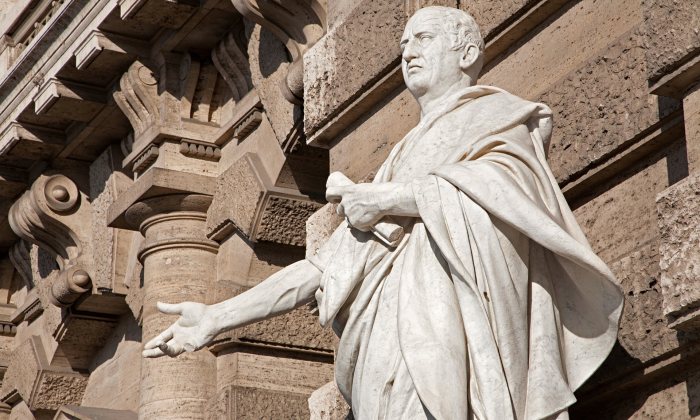Dictator, the third instalment in Robert Harris’s trilogy of novels following the rise and fall of the Roman statesman and orator Cicero, marks the culmination of 12 years of work and a remarkable literary achievement in the marshalling and distillation of the source material alone. Those turbulent years of the first century BC that saw the collapse of the Roman republic and the transition to empire remain one of the best-documented periods of classical history, and so many of Cicero’s writings have survived that Harris is able to blend his hero’s own words seamlessly with invented conversations to create a full-blooded and authentic portrait of this extraordinary politician and philosopher.
Unlike the previous book, Lustrum (2009), which began with the discovery of a murder, Dictator opens less obviously in the thriller mode, though its pace is no less relentless, as Harris takes us at a clip through the 15 years between Cicero’s exile in 58BC, as a result of the Cataline conspiracy detailed in Lustrum, and his eventual death in 43BC. Those years, Harris explains in his author’s note, are “arguably – at least until the convulsions of 1933-45 – the most tumultuous era in human history”, as the Roman republic governed by the triumvirate of Pompey, Caesar and Crassus fragments into civil war under the pressure of Caesar’s ambition...

